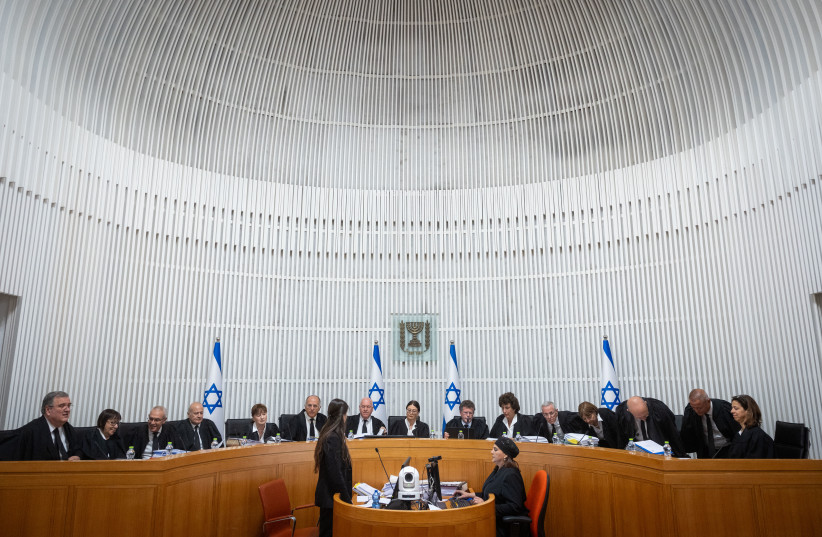The Judicial Selection Committee was convened on Thursday for the first time in the current government's term.
Justice Minister Yariv Levin had been refusing to convene the committee until its makeup was reformed as part of the judicial reform. Last week, he announced he would convene it within two weeks.
The court system is expected to have a shortage of 50 judges by the end of next month. No judges were selected during the meeting.
Thursday’s meeting had focused on assigning subcommittees, Levin and interim High Court of Justice Chief Justice Uzi Fogelman said in a joint statement, adding that more meetings were scheduled.
The committee consists of Levin, Fogelman, Justices Yitzhak Amit and Daphna Barak-Erez, Israel Bar Association representatives Ilana Seker and Mohammed Na’amna, National Missions Minister Orit Struck, opposition Yesh Atid MK Karine Elharrar, and Otzma Yehudit MK Yitzhak Kreuzer. It was split into two subcommittees.
Who forms the committee?
Struck joined the committee as the second minister on Wednesday night after she was appointed in a phone survey of ministers. The Attorney-General’s Office had told Prime Minister Benjamin Netanyahu he was overusing phone surveys, which are only meant to be available for emergency situations.

The five National Unity ministers who joined the government on an emergency basis did not support Struck’s appointment to the committee.
The committee agreed to meet within three weeks for a preliminary meeting to discuss nominees, but it will not vote on them then.
Further meetings were scheduled for February 20, 25, and April 17.
Levin’s announcement last week that he would convene the committee led to the cancellation of a High Court of Justice hearing where the Movement for Quality of Government, Yesh Atid, and others petitioned the court to order him to convene the committee.
Opposition MKs criticized Levin for not putting judicial selection on the agenda. According to reports, Levin had said he would only agree to appoint Amit as chief justice if the committee agreed to his nominees, who were heavily involved in the judicial reform, to fill the two empty Supreme Court spots.
“Israel’s judges are collapsing under the caseload, which is extending the time it takes to manage hearings in court,” Elharrar said ahead of the meeting. “The main people being harmed are the citizens of Israel. Ten months later, we cannot wait anymore, and we have to fill the dozens of open judicial slots, especially given the consequences of the war, which will definitely be felt by the judicial system.”
She said she hoped Levin would rise to the occasion and allow the committee to appoint the needed judges.
Opposition leader Yair Lapid posted on X, formerly Twitter, a photo of the committee along with the caption, “About time.”
